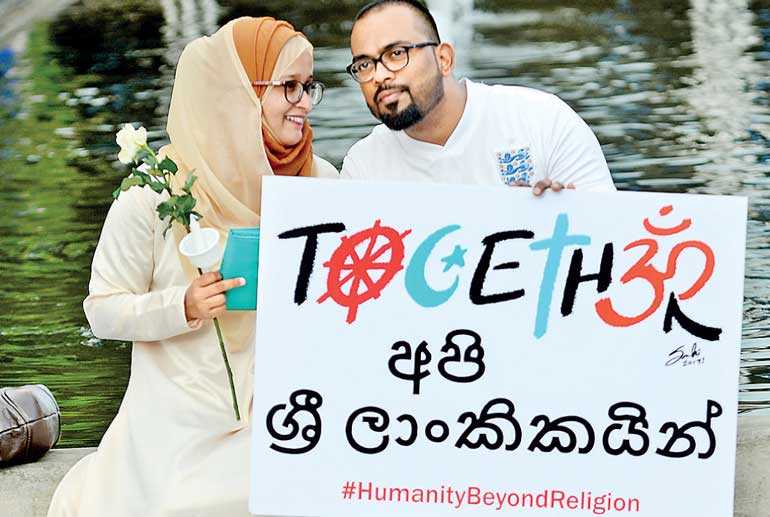Tuesday Feb 24, 2026
Tuesday Feb 24, 2026
Tuesday, 9 July 2019 00:00 - - {{hitsCtrl.values.hits}}

By Dr. Ruvaiz Haniffa
We are in the phase of rapidly-fading memories of the 2019 Easter Sunday carnage which was planned, organised and carried out by a group of misguided Sri Lankan Muslims. Their actions which the vast majority (please note word vast majority) condemn in no uncertain terms, has resulted in the surfacing of deep mistrust and suspicion of all Sri Lankan Muslims.
We as a community are being collectively punished for the actions of a few extremist terrorists who were either guided or misguided by a still existing group of fundamentalist Sri Lankan Islamic clergymen.
Very simply what I am trying to say is the status quo which prevailed before the 2019 Easter Sunday carnage is still prevalent. The difference is that the expression of ideas, concerns and expectations of the majority Sinhalese community with regard to the Sri Lankan Muslim minority is now more open and transparent.
I personally see this as opportunity to address the issue of suspicion and anger towards minorities in general and the Muslim community in particular. Once again it boils down to a question of tolerance among one another at individual level.
The concept of tolerance one must understand is not a natural state for humans. It is an attitude and virtue which needs to be cultivated. Research shows that tolerance helps governments maintain law and order and exercise power effectively. Basic tolerance fails to satisfy the moral person; it fails to animate a lively society and it ignores the potential power of the virtue of tolerance.
Let me summarise in a few sentence the questions which Sri Lanka will need to address in convincing the majority of the need for tolerance: “Why should we tolerate the Muslims and Tamils in the ‘Year of Tolerance’? We have tolerated them for thousands of years and see what they have done and continue to do to us? The question should be,‘Why can’t the Tamils and Muslims tolerate us the majority Sinhalese of this country?’ Will the Sinhalese Buddhists be tolerated in Saudi Arabia for example?
It is precisely this dialogue which we need to have as Sri Lankans. We may have different ethnic, religious, regional, cultural social and political views but what ought to be uniting us is the common denominator all of us share – Our Sri Lankan identity. This may I cite as first the justification for declaring 2020 a ‘Year of Tolerance’.
The details of the activities to be carried out can be discussed in the process of considering to declare 2020 a ‘Year of Tolerance’.
I am sure there are much more technically competent experts in the field of tolerance from a sociological perspective but let me conclude by sharing six practices and attitudes which capture the spirit of tolerance-
1.Empathy
2.Compassion
3.Dialogue
4.Conflict resolution
5.Resilience
6.Teamwork
Most of these I believe are already part of our diverse religious teachings and cultural practices as Sri Lankans, but for some reason our moral compass has been disrupted by religious, political and ethnic extremist from all sides for personal, political and economic advantage.
Like the Buddha said we need to follow the middle path, and I believe that is precisely what we should do and the most important justification for calling on the Sri Lankan Government and Sinhala Buddhist majority to support the call for declaring 2020 a ‘Year of Tolerance’ for Sri Lanka.